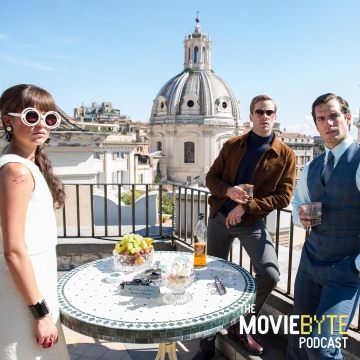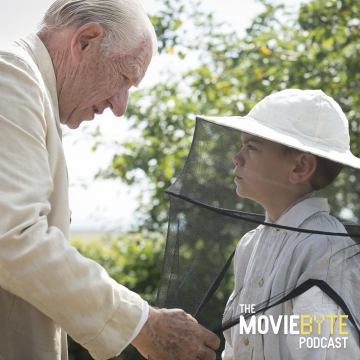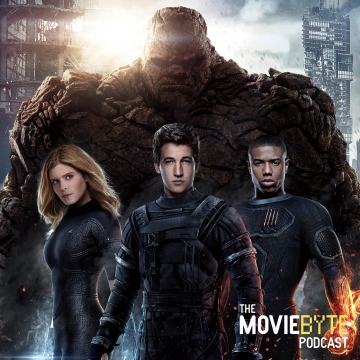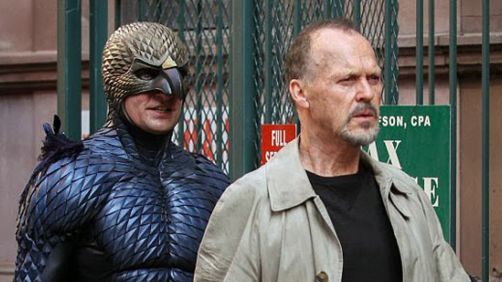
What is film? More specifically, what do films, or the folks who make them, want to accomplish with their film? The answer to this question can be different for every film and every filmmaker out there. But I believe we could find on a very broad overview, that 99% of all films every made intend to tell you a story, and entertain you while doing it. No matter the genre, no matter the subject, no matter true story or fictional, filmmakers want you to be enthralled and engaged and to enjoy the great telling of a good story. Let’s start there for Birdman. Did the film enthrall me? Did it engage me? Was I entertained? I must respond with a resounding yes.
What is Birdman?
That’s a slightly difficult question to answer. The film does occasionally lightly explore themes that it never follows up on. But in general, Birdman is about a washed up former comic book action movie star trying to find one last way to validate himself as an artist.
Mirroring to some degree the life story of our star, Michael Keaton, who plays Riggan Thomson, it seems as if our protagonist once had a highly lucrative, if somewhat demeaning and not well critically thought of roll as the fake comic-book character named Birdman. Like Keaton with the Batman franchise of the ‘90s, when it came time to sign on for more lucrative films, Riggan said no and wanted to move on to more artistic and fulfilling endeavors. And that was his ticket to obscurity.
The theater is his wannabe comeback. Along the way he signs some apparently big-name theater performers who may not be so easy to work with.
Acting, acting, and more acting
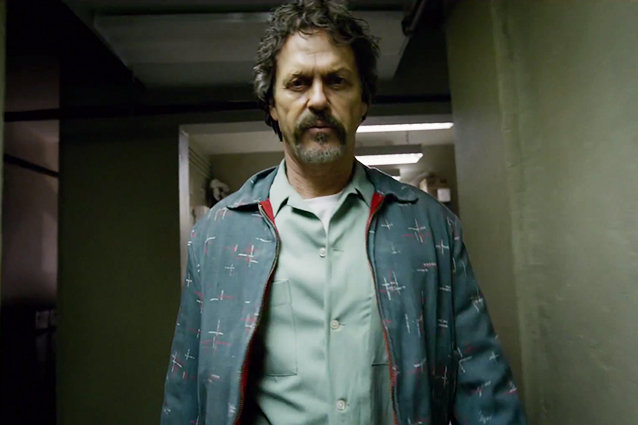
This film is filled with fantastic performances, not the least of which is, of course, Michael Keaton. There is hardly a moment when the film leaves his headspace. He plays someone who has become quite the odd-ball.
There are several interesting aspects to the character. Firstly, when by himself (usually in his dressing room), he has conversations with “Birdman” who constantly tells him how much better things used to be when he was playing that character, how much better it all was, and generally making an nuisance and irritation of himself.
He also believes he can move things with his mind and when he’s by himself, it appears he does so. Note that he never did it in the presence of anyone else, although he did take credit for a freak accident once early on in the film.
The third aspect to his character is as the director and and actor in the broadway adaptation of the Raymond Carver short story What We Talk About When We Talk About Love. There is no end of problems pulling this play off. It’s draining him financially, he has trouble getting his actors to perform, he’s losing connection with his family and reality, and more.
In all honesty, it feels as if Riggan is slowly going mad — but Keaton’s performance is so understated in that regard (most of the time) that you really do wonder. In real life there are two kinds of mentally unstable people: those that leave little question as to their mental health, and then those, like Riggan, teetering on the precipice of insanity. In the end, I believe he proves his instability, but for a while, you believe he might pull out of it.
This role is 75% of the film and Keaton turns in a strong performance in which he has to, of course act, but then he has to act the part of an actor who maybe can’t always act that well. These sorts of roles always fascinate me and I know they can be incredibly hard to pull off. But Keaton does it well.
Method Acting
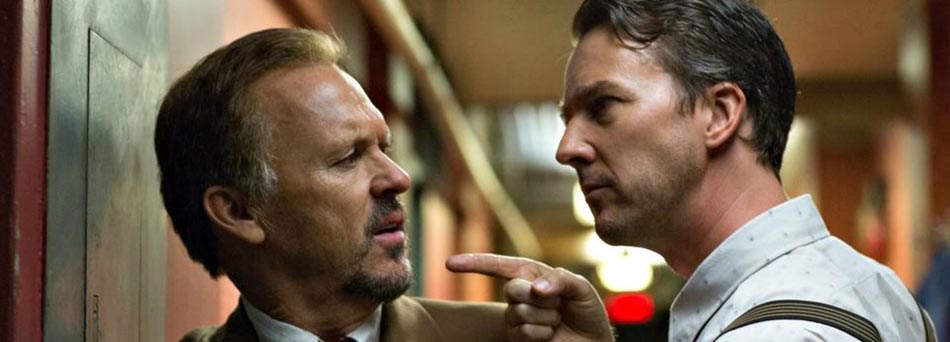
Very early in the film, Riggan’s star actor in the play is replaced by Mike Shiner, who is apparently a very well know and respected stage actor. Edward Norton brings this character to life quite believably as an arrogant boor who believes that the only real acting is method acting — he even refuses to learn any lines at all. He’s obnoxious, ill-tempered, uncouth, and belligerent. Norton relishes the role and he’s fantastic.
There’s a scene when Shiner is first hired where he demonstrates his boorishness in a wonderful back and forth exchange of a scene between himself and Riggan. Riggan is quite taken with him as an actor, and for a most part they hammer out the scene and make something of it. It is a wonderful look into how the process of method acting can really bring something to life while at the same time foreshadowing much harsher realities to come later on.
Other Roles
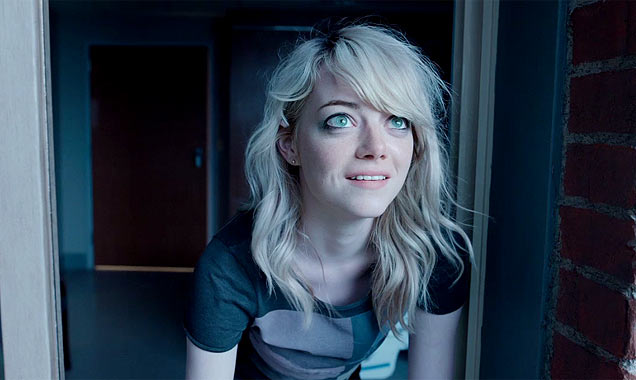
There are several other roles, but since these two take up about 90% of the film they don’t get much time. Never-the-less, one particular performance deserves calling out.
I haven’t had the pleasure of seeing Emma Stone in very many things yet, but what I have witnessed of her performances is fantastic. This is no exception. She’s Sam Thomson, the daughter of the illustrious Birdman. As you might imagine, as the child of a wealthy, washed up actor, she’s a bit of a wreck. She’s technically now employed by her father at the theater, but she’s been in rehab for substance abuse, and it’s obvious she’s still fighting the stuff. At one point she’s caught with weed by her father, and that’s turned by him into a self-serving diatribe about how she can’t do this to him and he’s worked hard to get here. This leads to a wonderful monologue by Stone on that very self-centeredness.
Her interactions with Mike Shiner are also wonderful, if heartbreaking at times. Emma brings something to this role I, personally have not yet seen from her — yeah she does the “stoned” thing well, but there’s something more here: a bitterness about life. There’s a dissatisfaction deep within. Her father’s distance has basically ruined her. You always here that daughters need their fathers, and I believe that with all my being. But lack of good fathering has different effects on different people. In this case, the effect is profound.
Cinematography
There are both good and bad things to observe here. I shall start with the good, then transition to the bad. The good here is that we feel like we are in the space with our characters, we track with them, the camera dwells on little obscure details, it tracks in wonderful fashion. Cinematographer Emmanuel Lubezki manages to put us in this space without resorting to cheap, shaky cam tactics. If you’ve ever heard David Fincher talking about the idea that the camera is omniscient, that is very much an apt description here. But there is much more than that. There are very few actual editorial cuts in this film. Most of the cuts are hidden or (probably) digitally stitched together to create a seamless single camera take for the majority of the film. The very few cuts that are present here are very deliberate. Despite this “single take” approach, the film takes place over the course of 1 week or something like that. There are strokes of brilliance in how this is pulled of at times where the camera pulls away from one scene, perhaps behind stage, and pans over to another with the same actors now on stage performing the play. There are other times when the continuous nature of the shot and camera work are a bit force, but those are few and far between. In general I would characterize the camera work as purposeful, deliberate, and lovely.
Where the cinematography falls down a bit is where it seems meandering and pointless. Director Alejandro González Iñárritu and cinematographer Lubeski love to follow people around. As is usually this case, this feels super laconic and lackadaisical. It can be super frustrating at times because we can’t quite see what is going on. In my opinion, this tracking behind shot has only been pulled off well once that I know of, and that was by Martin Scorsese in Goodfellas. In that case it was a technique he employed only once in the film, and he made sure there was plenty of energy motivating the camera, what were seeing, and what the characters were doing during this tracking shot. And it served a terrific purpose in that film. Here the camera often has no energy and everything starts to feel a little like it’s falling apart, technically speaking. It’s were we can kind of see the seems of the work that they’ve tried to hide from us with things like faux single takes.
Critic Culture
[SPOILERS AHEAD]
If I can delve into major spoilers now, one of the strongest elements of this film is its analysis of critic culture. While I am most familiar with film critics and the culture there, it’s not hard to see that the snobbery of broadway is very similar in many ways. Of course, in the case of Broadway, critics are far more important. Much fewer people go to live theaters, and those that do pay far more attention to critics than average movie-goers.
Riggan has a run-in with a theater critic just before the opening of the play. While the film doesn’t take sides and I believe shows us there were problems on both sides, it’s a wonderful look into both the arrogance of actors and performers, and the snobbery of critics in general. Theater critic Tabitha (Lindsay Duncan) tells Riggan she’s going to destroy his play even though she hasn’t seen it. The reason is simple, he’s a washed up actor and not worthy. She considers it a high crime that he has taken up space in a theater that could otherwise be occupied by those more worthy in her snobbish estimation. She lives in her own world, and who cares that he has poured his life and soul into the theater and all his dreams fly or die on her critical analysis tomorrow night.
But then for his part, Riggan’s self entitled rant and crazed demeanor (this is probably the most crazed and insane we have seen him up to this point) point to a much deeper and systemic problem with his arrogance and pompousness. He unfortunately proves her point — at least in this scene.
It’s a chicken and egg problem. She’s out of line, but so is he. Which is the cause of which? Who knows. But I have definitely felt this problem with film critics before and it’s not hard to imagine it being a far worse problem with theater critics. The snobbery in our community can sometimes be overwhelming and sickening to the point that — though I am an aspiring and amateur critic, I do not like to identify as such.
The Ending
I am still uncertain whether I actually like where this film ended up. It became somewhat unclear where Riggan’s delusions ended and reality began. You are quite certain up until the very end that everything Riggan imagines regarding telekinetics, flight, and supernatural abilities are all complete delusions — but the very last scene of the film possibly contradicts that? Which, if true, completely removes the reality we believed of everything that came before. It made me wonder if the entire film was some dream of Riggans. I don’t mind a little bit of uncertainty in my endings, but I don’t like too much, and this felt like too much in the same way I felt about the uncertainty of Inception‘s ending.
But there is some uncertainty that is actually good before the very final scene to which I was referring. After the conversation with critic Tabitha where she promised to destroy the play no matter what, he has realized all his life’s work and goals up to this point have been for naught. He’s depressed, angry, delusional, and completely crazed. During the final act break, he gets a real gun from his dressing room, and in the last scene of the play where his character is to shoot himself in the head, he really does. The applause for the grittiness and realism is thunderous. No one has presumably realized it actually is real yet.
This much I had predicted up to this point. As soon as Riggan started his conversation with the critic, I predicted that in the scene with the gun in play, Riggan would actually shot himself. But what I could not predict was him waking up in the hospital in the next scene after one of the film’s true cuts. But he does. He had only shot his nose off.
The uncertainty is the question, did he intend to commit suicide and failed, or had he every only meant to shoot his nose off? This is the sort of uncertainty I’m okay with.
And I loved that the critic who promised him a scathing review gave him a favorable one talking about real and metaphorical blood. The price for his good review was the spilling of blood — another indictment of critic culture.
Cultural Genocide
Director Iñárritu has made it clear before that he believes the super-hero action films of our modern day are cultural genocide. He even gives that line to one of the actors in the film. This is where the irony comes in, in my opinion. Despite his depiction of the snobbery of film culture, I feel like he goes there himself both in his film and in real life. Who’s to say that a super-hero film inherently must be a lower form of art than another. Sure, like many expressions of the acting medium, it can be cheesy and poorly done. But some of the better films out there are super-hero films.
I find the irony of his depiction of critic snobbery, and then his own snobbery of this kind to be quite delicious, and not in a good way.
There’s another form of cultural genocide going on in this film — and this one, I think, is entirely unintentional on the filmmaker’s part. That is the depiction of immorality within the theater ranks. This is, as I understand it, truth in filmmaking. And you should beware as well — if you haven’t seen this film yet, which would be weird since you are reading a spoiler-y review of it — that the film, while never depicting complete graphic acts, never-the-less talks frankly about many things sexual, and in fact, one character tries to have sex with another character on stage under the covers “for the realism”. And there’s a little bit of male nudity from behind.
None of this is unexpected — in fact it may be hard to make a film about theater without these elements being part of the story in some way.
Conclusion
If you are sensitive to the just prior mentioned sexuality, you might want to stay away — although this film doesn’t come anywhere near the level of, say, Gone Girl which I saw only a few weeks ago, and which did make me pretty uncomfortable. I can definitely see this one making many of my friends or readers uncomfortable.
Never-the-less I found this film to be compelling and worth your time if you don’t have a problem with the above. Though there are some things that bother me a bit as I have mentioned, nothing that took away from the film in major, meaningful ways. It definitely explores some interesting ideas and for that, I recommend it.
